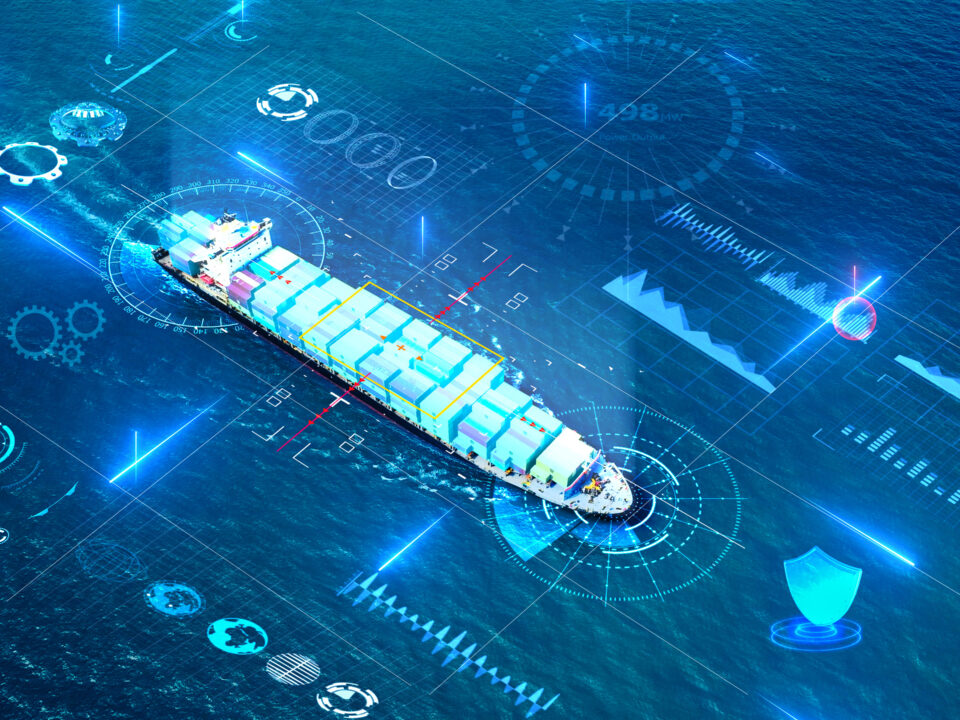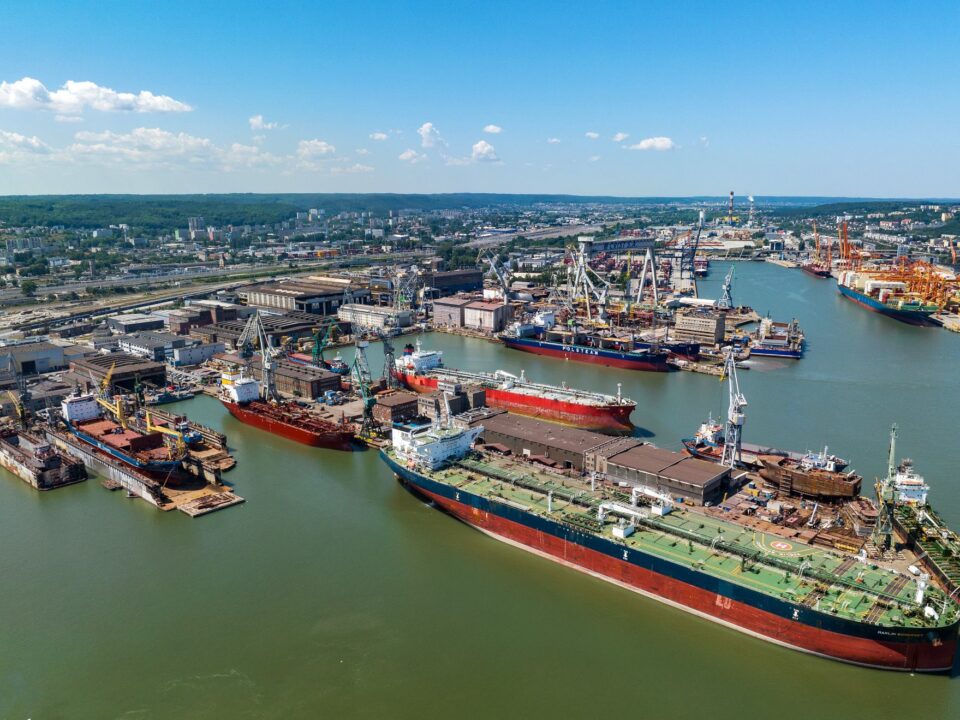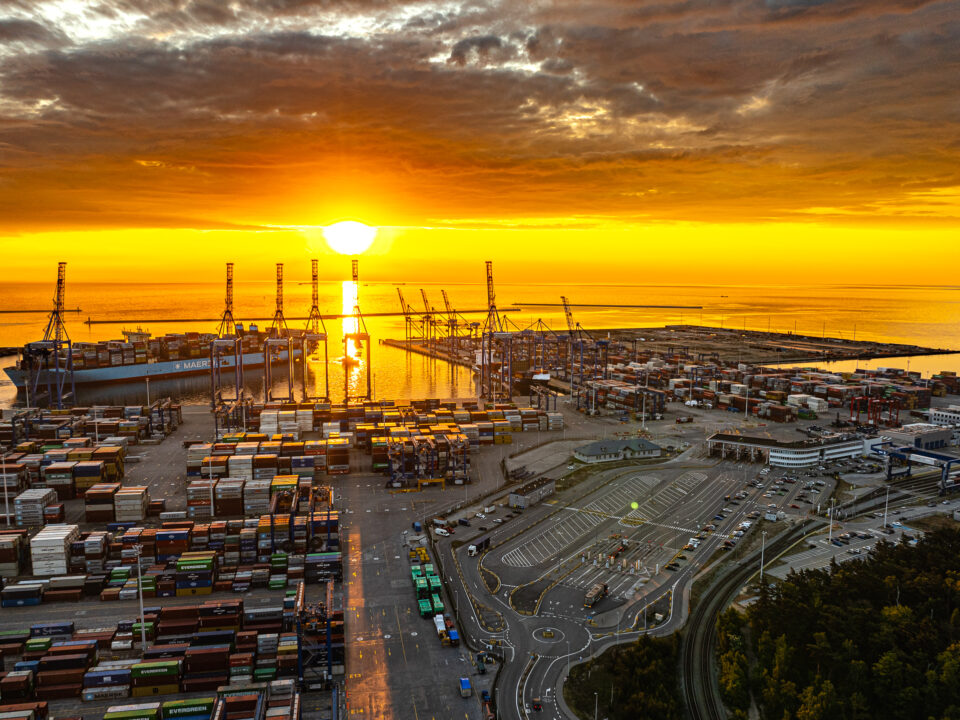
Caring for European industry
22 August 2025
AI in Maritime Logistics
6 October 2025On October 10, 2025, the 24th edition of the MARITIME ECONOMY FORUM will be held at the Pomeranian Science and Technology Park in Gdynia – one of the most important annual meetings of the maritime industry in Poland.
The partner of the Maritime Economy Forum (FGM) in Gdynia is the Association of Polish Maritime Industries FORUM OKRĘTOWE, which, as every year, participates in its organization and leads the main topic of the meeting.

This year will be particularly interesting, as it takes place just days before the International Maritime Organization (IMO) makes key decisions for the maritime industry regarding the global decarbonization of shipping. These decisions are scheduled for October 14-17, 2025, during the second Extraordinary Session of the IMO Marine Environment Protection Committee.
In the main part of the MARITIME ECONOMY FORUM in Gdynia, the special guest of the event will be Dr. Dorota Lost-Sieminska, Director of the Legal Affairs and External Relations Division at the International Maritime Organization, who leads the Division’s work on all legal aspects of IMO activities, including the decarbonization of global shipping, i.e. the so-called “Net-Zero Framework.”
The decisions to be made by the IMO Marine Environment Protection Committee are awaited with great interest by the entire maritime industry. The solutions adopted will be global in nature, universal for the entire industry. They will have a significant impact on global shipping, as well as on the shipbuilding industry, port infrastructure, and many other areas of the maritime economy. Shipping could become one of the first sectors of the global economy where emission-reducing regulations are universally applicable worldwide.
Below is a brief reminder of the events that led us to this point.
Climate agreements
The Paris Agreement, adopted in 2015 at the United Nations Climate Change Conference (COP21) in Paris, commits its signatories to limiting the increase in average global temperature to 1.5°C to 2°C above pre-industrial levels. It is the first global, legally binding document in this area.
Emissions from maritime shipping – responsible for approximately 3% of global CO2 emissions – were excluded from the Paris Agreement because they are difficult to allocate to individual countries. This matter was left to the International Maritime Organization, a UN agency responsible for maritime affairs, particularly maritime safety and the prevention of marine pollution from ships. The IMO has repeatedly demonstrated the effectiveness of its actions in the past, for example, by drastically reducing sulfur emissions from maritime shipping
European Union steps out of line and… causes confusion
The effect of the Climate Agreement on our continent is the so-called European Green Deal announced in 2019 by the European Union, which assumes reducing greenhouse gas emissions by at least 55 percent by 2030 compared to 1990 levels, in order to achieve climate neutrality by 2050.
Fit for 55 package, on the other hand, includes specific legal instruments implemented in European Union legislation, addressing the above goals. These are then translated into legal regulations in individual EU countries. This package is exceptionally broad.
It also covered shipping, including through the EU ETS directive and the FuelEU Maritime regulation, which caused considerable confusion.
European Union regulations are limited to our European region. Their hasty introduction meant that some parts of the global shipping sector were included in the decarbonization process and the associated additional costs, while others were not. This resulted in significant investment uncertainty among shipowners, aware that the introduction of universal IMO regulations for the entire global fleet is still ahead of us.
Only the International Maritime Organization, a UN agency, has the power to decarbonize global shipping. This was agreed upon during the adoption of the Paris Agreement. Therefore, the entire maritime industry is eagerly awaiting the IMO’s decisions, which will be made on October 14-17 in London, and the introduction of universal solutions for the entire shipping sector.
IMO effectively reduces emissions from shipping
According to World Trade Organization estimates, nearly 80% of international trade volume is transported by sea. Maritime transport is critical to the daily functioning of the world, and any regulations concerning it should be undertaken with exceptional caution and thoughtfulness.
This is precisely how the International Maritime Organization operates – in a systemic and long-term manner. For example, Annex 6 to the MARPOL Convention on the Reduction of Air Pollution from Exhaust Gases, adopted in 1997, entered into force in 2005 with implementation schedules for subsequent years to allow the global fleet time to adapt. To date, the IMO has effectively reduced sulfur emissions into the atmosphere
„Net-Zero Framework”
The IMO emission targets adopted in 2023 under heavy pressure from the climate lobby, modified from the original ones, contained in the so-called “Net-Zero Framework”, are now close to those declared by the European Union.
“Net-Zero Framework” will introduce, among other things, a uniform greenhouse gas pricing mechanism for the global shipping. This global approach will replace or synchronize similar regional regulations – including those in the European Union – and will create opportunities to reduce administrative burdens and investment risks. It will also provide long-term certainty and predictability that will help the international shipping industry make the necessary investments to reduce net greenhouse gas emissions as quickly and effectively as possible.
IMO decision making process has started
The general principles for the regulations implementing the IMO emission targets are contained in the draft amended Annex VI to the MARPOL Convention. They were approved in April of this year in a vote requiring a simple majority. At that time, 63 countries voted in favor (including China, Brazil, and EU member states), while 16 countries voted against (primarily oil exporters, including Russia).
The final decisions will be made during the Second Extraordinary Session of the IMO Marine Environment Protection Committee, which will be held on 14-17 October 2025.
Adoption of the amendments to the revised MARPOL Annex VI will require a two-thirds majority of states present at the vote. IMO only conducts a vote, if there is no consensus on the proposed regulation. If adopted, the amendments will enter into force in 2027, with effective application beginning in 2028.
At this point, the outcome of the vote is uncertain due to the very harsh stance taken by the United States government.

Donald Trump’s administration strongly rejects “Net-Zero Framework”
A joint statement by Secretary of State Marco Rubio, Secretary of Commerce Howard Lutnick, Secretary of Energy Chris Wright, and Secretary of Transportation Sean Duffy, adopted on August 12, 2025, decisively rejected the IMO’s “Net-Zero Framework” proposal.
“The Trump Administration unequivocally rejects this proposal before the IMO and will not tolerate any action that increases costs for our citizens, energy providers, shipping companies and their customers, or tourists” the statement read.
They even go so far as to make threats:
“We will fight hard to protect the American people and their economic interests. Our fellow IMO members should be on notice that we will look for their support against this action and not hesitate to retaliate or explore remedies for our citizens should this endeavor fail”.
The world press reports that the US government is exerting strong pressure on other IMO member countries – for example, the Netherlands – threatening them with retaliatory measures in the form of additional tariffs, port fees and visa restrictions if they support the “Net-Zero Framework” in the October IMO vote.
Is this a standard negotiating tactic of the Donald Trump administration, which we’ve been observing for several months now, of making very high demands at the beginning, only to eventually reach an agreement at a lower level? Perhaps.
The US statement clearly expresses concern that the “Net-Zero Framework” will exclude proven emission-reduction technologies in which the US industry is a leader, such as liquefied natural gas (LNG) and biofuels. Therefore, there is room for compromise, and achieving it is in the interest of the entire maritime industry, although it will likely be extremely difficult.
Link to Donald Trump administration statement and world press reports below:
The October IMO session in London promises to be an incredibly challenging meeting. Supporters and opponents of the “Net-Zero Framework” are mobilizing their forces.
At the MARITIME ECONOMY FORUM in Gdynia about the “Net-Zero Framework”
A few days before the start of the meeting of the IMO Marine Environment Protection Committee in London, participants of the MARITIME ECONOMY FORUM in Gdynia will have the opportunity to familiarize themselves with the preparations for this most important meeting in recent years for the maritime industry, which will also have a significant impact on the Polish maritime economy
As mentioned above, the main part of the FGM will feature Dr. Dorota Lost-Sieminska, Director of the Legal Affairs and External Relations Division at the International Maritime Organization, who leads the Division’s work on all legal aspects of IMO activities, including the decarbonization of global shipping.
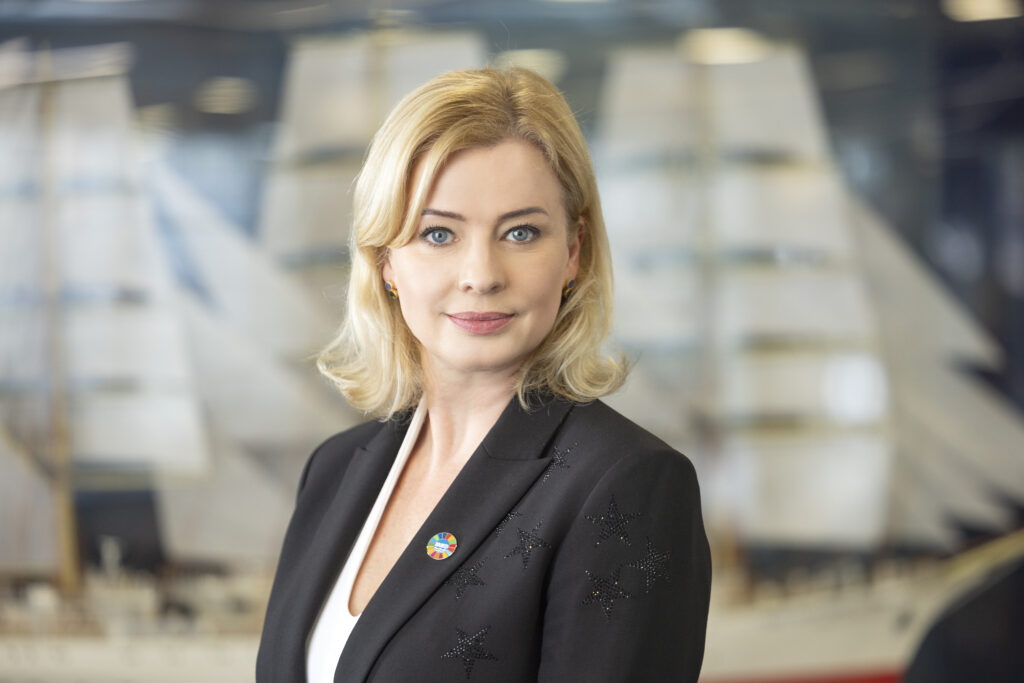
In her speech, Dr Dorota Lost-Sieminska will present the International Maritime Organization and its decision-making process, what the “Net-Zero Framework” proposal includes and how the support for these solutions is shaping up on the eve of the final decisions by the IMO.
Participation in the MARITIME ECONOMY FORUM in Gdynia is free of charge.
There are still a few seats available – please don’t delay in registering. You can do so by visiting the FGM website, linked below:
See you at this important event for the maritime industry.
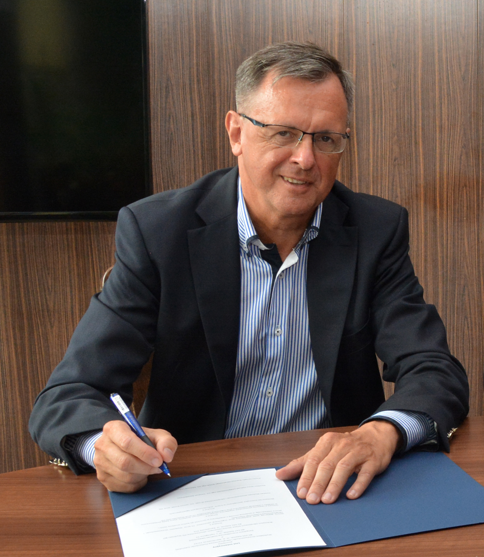
Director of the Association of Polish Maritime Industries FORUM OKRĘTOWE
EU Transparency Registration Number – REG 0133338100106-19



